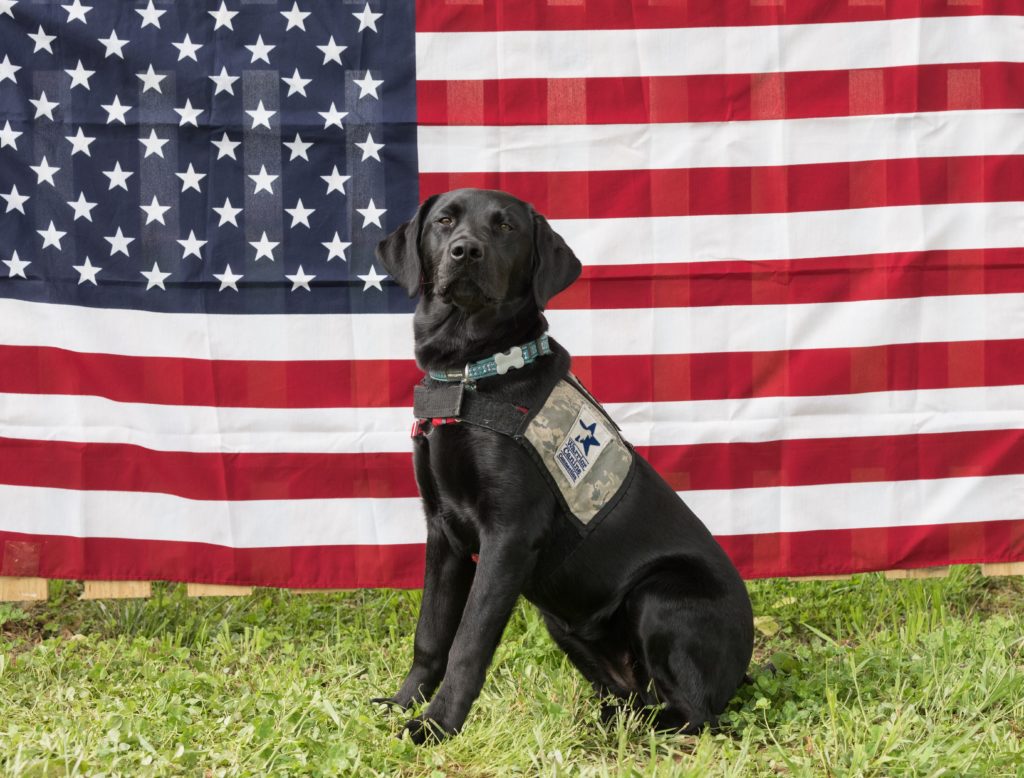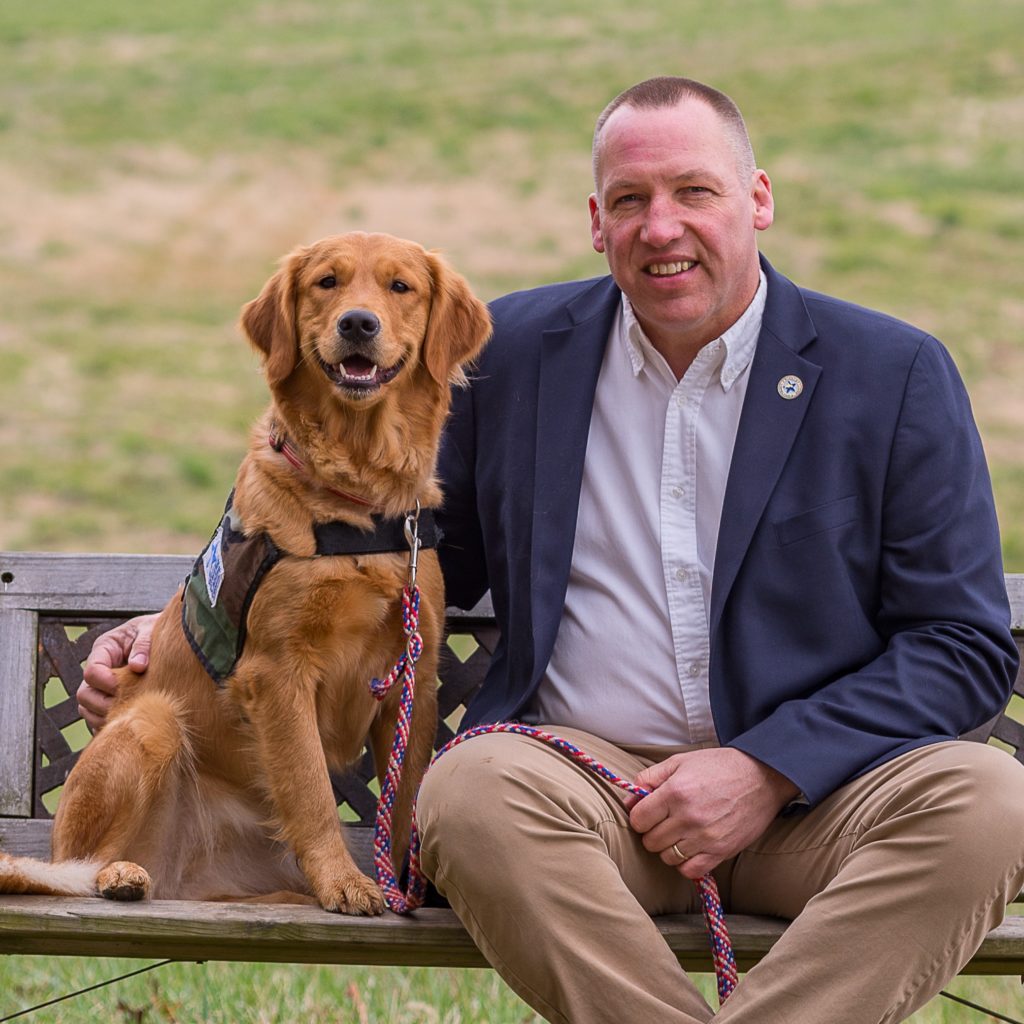
Retired Coast Guard Capt. Suzanne Brown was receiving treatment for PTSD at Walter Reed National Military Medical Center in Bethesda when she volunteered for an ongoing study on service dog training and post-traumatic stress disorder. Twice a week for three months, Brown met with a dog trainer to teach a variety of commands to service-dogs-in-training.
To Brown’s surprise, working with the dogs seemed to relieve some of her symptoms, such as chronic pain, headaches and anxiety. Her heart rate and blood pressure also improved. “I was definitely in a much better mindset when I would leave those sessions,” she says.
The Walter Reed study, which ends in September, is a collaboration with Warrior Canine Connection, a nonprofit based in Boyds that helps veterans and active duty military members cope with post-deployment challenges through service dog training. Since 2011, more than 5,000 service members – or “Warriors,” as WCC calls them — have trained service dogs for their fellow veterans, an experience that provides them with a renewed sense of purpose while reducing anxiety and preventing isolation.
“These men and women have been trained to be so in control of their emotions that they become numb, so the fact that we’ve found a way to help them retrain themselves really encourages me,” says WCC founder Rick Yount.

Yount first discovered the healing power of dogs nearly 30 years ago while working as a social worker. His golden retriever, Gabe, was so successful at comforting his young clients that Yount trained him to become a therapy dog. A few years later, in 2002, he started a service-dog-training program for teens at alternative learning centers in West Virginia.
After receiving applications for the dogs from Vietnam and Korean War veterans, Yount realized the desperate need for more service-dog-training organizations. He began to wonder whether veterans with combat PTSD might also benefit from being involved in the training of these dogs. In 2008, he launched a pilot program in California with veterans hospitalized for severe PTSD.
“They couldn’t be with the unit they were so bonded to in Afghanistan or Iraq, but this was a way they could achieve that sense of mission,” says Yount, referring to the military’s Warrior Ethos.
Yount founded Warrior Canine Connection in 2011, the same year his dog-training program began serving veterans with traumatic brain injury and psychological health conditions at Walter Reed’s National Intrepid Center of Excellence. Its Healing Quarters facility sits on 80 acres of leased parkland in Seneca Creek State Park, with additional program sites in California, Colorado and North Carolina.
Warriors visit the training center weekly for one-hour sessions with purpose-bred golden and Labrador retrievers, teaching them basic commands before moving onto more complicated ones, such as waking wounded veterans from nightmares and intervening when they show stress cues. Trainers can also take the dogs out in public to socialize them to larger areas and groups of people.
Some Warriors, including Brown, have been inspired to continue working with veterans and other individuals with disabilities after the training program ends.
“I found a new passion for helping others,” says Brown.
This story first appeared in our August-September 2021 issue.




